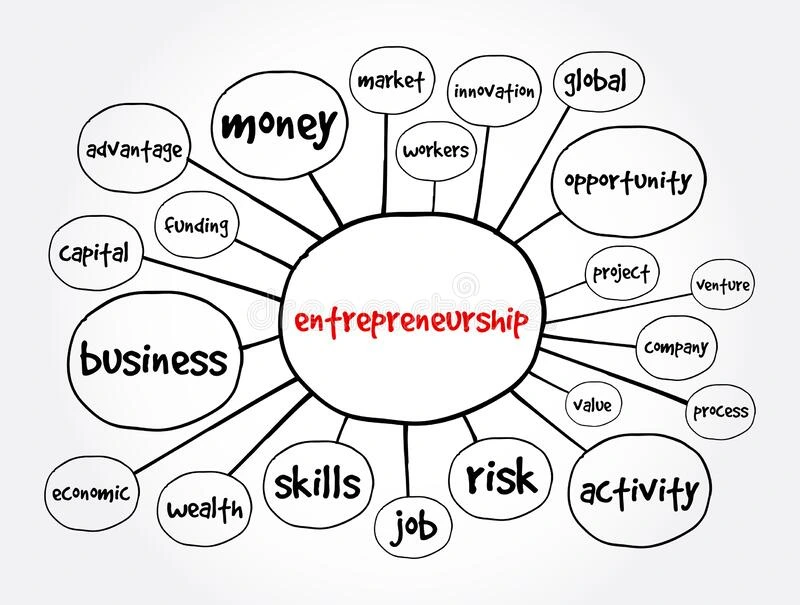In today’s competitive and fast-paced business landscape, student entrepreneurship programs (SEPs) have emerged as crucial platforms for fostering the entrepreneurial mindset among students. These programs are designed to provide young minds with the tools, resources, and real-world experiences needed to innovate and build their own ventures. From developing essential skills to connecting with mentors and industry leaders, SEPs play a vital role in preparing students for future success in entrepreneurship and beyond.

What Are Student Entrepreneurship Programs?
Student entrepreneurship programs are structured initiatives that aim to nurture entrepreneurial talent among students, often offered by universities, colleges, or independent organizations. These programs typically include training, workshops, mentorship, startup competitions, and networking opportunities. By participating in these programs, students learn how to transform innovative ideas into viable business ventures and gain valuable insights into the entrepreneurial ecosystem.
Why Student Entrepreneurship Programs Matter
Entrepreneurship programs for students are more than just educational opportunities—they are transformative experiences that can shape career paths and personal growth. Here’s why SEPs are so impactful:
- Developing Business Acumen: SEPs provide practical experience in areas such as business planning, marketing, and finance, helping students understand how businesses operate.
- Cultivating Creativity and Innovation: Students are encouraged to think outside the box, come up with creative solutions, and innovate in ways that can address real-world problems.
- Building a Professional Network: SEPs offer a gateway to connect with entrepreneurs, investors, and industry experts, creating networking opportunities that can open doors to future career paths.
- Enhancing Leadership Skills: Through leading projects and managing teams, students develop strong leadership, communication, and organizational skills.
- Boosting Employability and Career Prospects: Even for those who do not pursue entrepreneurship full-time, the experience gained through SEPs makes students highly attractive to employers.
Core Elements of Student Entrepreneurship Programs
Successful SEPs often include a combination of the following key components to provide a holistic entrepreneurial education:
- Educational Workshops and Seminars: Covering topics like business strategy, financial planning, marketing, and product development.
- Mentorship Opportunities: Students are paired with experienced entrepreneurs and professionals who guide them through the challenges of starting and running a business.
- Business Plan Competitions: Competitions allow students to present their business ideas to panels of judges, gain feedback, and secure seed funding.
- Startup Incubators and Accelerators: These provide students with access to resources, office space, and funding to help develop their ideas into scalable businesses.
- Access to Funding and Grants: Financial support is often provided to help students turn their business concepts into reality.
- Networking Events and Industry Exposure: Events such as pitch nights, networking sessions, and workshops with guest speakers connect students with the broader entrepreneurial community.
Types of Student Entrepreneurship Programs
There are various types of SEPs, each offering unique experiences and opportunities:
- University Entrepreneurship Centers: Many universities have dedicated centers that offer entrepreneurship courses, mentorship, and support for student-led startups.
- Student-Led Incubators and Clubs: These provide a space for students to collaborate, share ideas, and support each other’s ventures.
- Industry-Focused Programs: These cater to specific sectors like technology, healthcare, or social entrepreneurship, providing tailored resources and expertise.
- Hackathons and Innovation Challenges: Short-term events where students form teams, brainstorm solutions, and develop prototypes in a high-energy environment.
Benefits of Participating in Student Entrepreneurship Programs
The advantages of joining an SEP extend far beyond starting a business. Here are some of the key benefits:
- Hands-On Learning Experience: Students gain practical skills that complement theoretical knowledge, making them well-rounded professionals.
- Confidence Building: By tackling real challenges and presenting their ideas, students build self-confidence and resilience.
- Exposure to Real-World Challenges: Students experience the realities of business development, from conceptualizing ideas to navigating financial constraints.
- Access to Funding: Many programs offer seed funding or grants, enabling students to take their ventures to the next stage.
- Mentor Support and Guidance: With experienced mentors, students receive critical advice, feedback, and insights that shape their business journeys.
Success Stories from Student Entrepreneurship Programs
Many well-known startups began as student projects supported by SEPs. Here are a few notable examples:
- Facebook: Mark Zuckerberg developed Facebook while a student at Harvard University, initially as a networking platform for students.
- WordPress: Started by a student at the University of Houston, WordPress has become one of the most popular content management systems globally.
- Rent the Runway: Founded by Harvard Business School students, Rent the Runway disrupted the fashion industry by providing rental services for high-end clothing.
How to Get Involved in a Student Entrepreneurship Program
For students looking to dive into entrepreneurship, here’s how to get started:
- Research Available Programs: Look for SEPs at your university or in your local area. Many organizations offer specialized programs that cater to different stages of business development.
- Join Entrepreneurial Student Clubs: Many universities have entrepreneurship clubs where students can meet like-minded peers and get involved in various projects and initiatives.
- Attend Workshops and Seminars: Take part in events that focus on entrepreneurial skills and connect with industry leaders.
- Participate in Competitions: Enter business plan or pitch competitions to showcase your ideas and gain valuable feedback.
- Seek Out Mentorship: Reach out to potential mentors who can provide guidance and support as you develop your entrepreneurial ideas.
Conclusion
Student Entrepreneurship Programs are powerful platforms for cultivating the entrepreneurial spirit and skills among young minds. By providing opportunities to learn, innovate, and collaborate, SEPs help students gain the confidence and knowledge needed to pursue their entrepreneurial dreams. Whether launching a startup or preparing for a dynamic career, involvement in SEPs equips students with a competitive edge and a pathway to success in an ever-evolving business world.